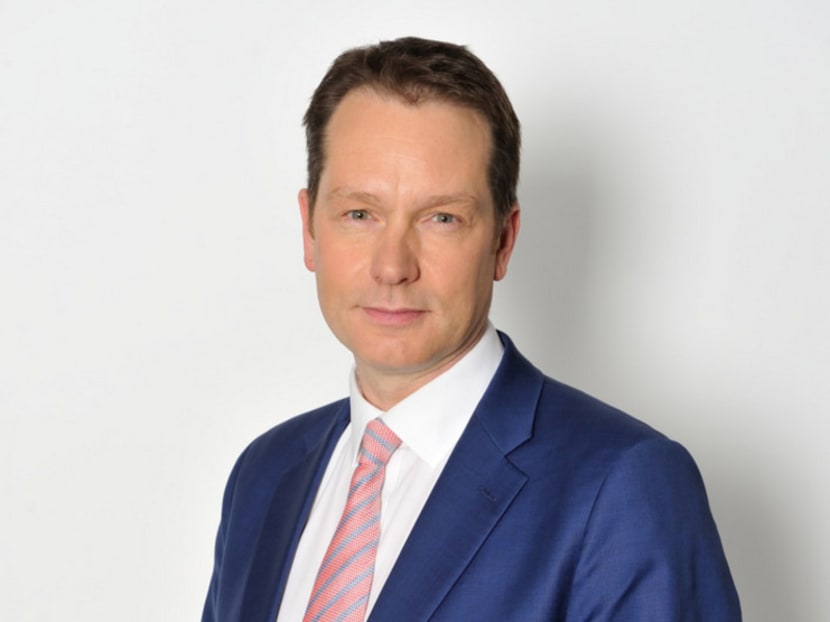How to tackle the scourge of fake news
Jim Egan, the chief executive officer of BBC Global News, was in Singapore last week. TODAY caught up with him for his take on fake news and how government, news organisations and society at large can deal with the issue.

Jim Egan, BBC CEO, said: "All of the research that we have undertaken suggests that people find it very hard to identify when something is false or deliberately manipulated, so media literacy is definitely important." Photo: BBC
Jim Egan, the chief executive officer of BBC Global News, was in Singapore last week. TODAY caught up with him for his take on fake news and how government, news organisations and society at large can deal with the issue.
How can governments best deal with the scourge of fake news? Are there examples of countries that have tackled this problem successfully?
The fake news crisis has only really emerged within the last 12 months and lots of countries are thinking about what their response should be, but I do not think yet that any country in particular has tackled the problem successfully.
Governments across the world are certainly struggling to come to terms with the impact of fake news, but one of the first things to do is just be really clear about what we mean about fake news — is it people deliberately putting out stories to earn money online? Is it news agencies which, in the course of their day-to-day editorial activities, are making mistakes and then correcting them?
Is it propaganda? Or is it just online opinion? We need to be clear about what fake news really is before we can figure out how to deal with it.
Although governments clearly have a role and an interest in dealing with fake news in the first instance, they are probably best advised to see how far news organisations, publishers and even social media networks get to, in terms of getting to grips with the issue. It is something that every serious news organisation is worrying about and most are starting to put into place measures to combat fake news.
We feel a great responsibility for providing impartial and accurate news which people can trust in the ‘post-truth’ era, which is why the BBC has made its fact-checking service ‘Reality Check’ permanent, for example.
Secondly the social media platforms recognise that they themselves have an issue with fake news — so much so that Facebook and Google are now employing 13,000 people purely with the purpose of doing something about it.
I think governments should work with and see how far the main players in the news business can get to in order to solve this problem before they start to undertake and implement any measures themselves.
What stakeholders would be involved in a government’s fight against fake news and what would be their roles?
In addition to government and policymakers I would expect regulators to be involved, (along with) news organisations, some of the major platforms and social media networks, as well as advertisers who have a strong interest in the safety of their brands and the way they fund journalism.
Laws in Singapore to deal with fake news could involve working with online platforms to detect and dispel falsehoods, as well as taking to task the perpetrators of falsehoods. How effective would such an approach be?
People need to move very carefully and cautiously into this area because it is precisely the sort of issue where the law of unintended consequences may well take hold.
Dealing with the sheer volume of information on social networks is extremely difficult for anybody and it can be very hard to figure out where this information originated and what the relevant law of the land might be there.
In dealing with fake news, even if you think you understand what it is and how it can be identified, you do run up quite quickly against issues such as freedom of speech and so on.
So my general advice on this is to spend much more time on the consultation and the careful drafting of the legislation rather than rushing to put something in place, because this is a fast-moving and complicated debate that goes right to the very heart of democratic discourse and we all need to be very careful with what we do about this.
The Singapore Government has also stressed the importance of public education. Is media literacy the best measure to counter fake news? Why or why not?
I am not sure that it is the whole answer, but I definitely think that there is a very important role for educating people, helping both younger and older people to figure out and understand what fake news is and how to spot fake news.
All of the research that we have undertaken suggests that people find it very hard to identify when something is false or deliberately manipulated, so media literacy is definitely important.
But it is only one of the ingredients for solving this and it is something that will have a long-term rather than an immediate benefit.






